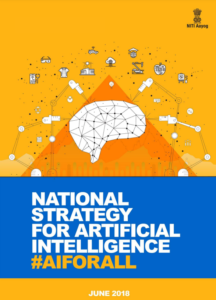Demystifying AI Literacy: Empowering Everyone for the Future
In a world increasingly shaped by technology, understanding Artificial Intelligence (AI) is no longer a luxury reserved for tech enthusiasts and professionals; it’s a necessity for everyone. AI literacy is the key to unlocking this understanding, equipping individuals with the knowledge and skills to navigate, utilize, and influence AI in meaningful ways. Whether you’re a student, a professional, a policymaker, or simply a curious citizen, enhancing your AI literacy can empower you to thrive in the digital age.
What is AI Literacy?
AI literacy refers to the basic understanding of artificial intelligence concepts, technologies, and implications. It encompasses the ability to comprehend how AI systems work, their potential applications, and their ethical, social, and economic impacts. AI literacy is about being informed and critical consumers of AI technologies, and, for some, becoming capable contributors to the development and deployment of AI systems.
Why is AI Literacy Important?
Informed Decision-Making: AI is embedded in many aspects of our lives, from personalized recommendations on streaming services to autonomous vehicles. Understanding how these systems work allows individuals to make informed decisions about their use and adoption.
Ethical Awareness: AI systems can have significant ethical implications, such as bias in decision-making, privacy concerns, and job displacement. AI literacy equips individuals with the awareness to identify and address these issues.
Workforce Readiness: As AI continues to transform industries, having a basic understanding of AI concepts is becoming a valuable skill in the job market. It enables professionals to adapt to new roles and leverage AI tools effectively.
Active Citizenship: In a democratic society, citizens should have a say in how technologies are developed and used. AI literacy empowers individuals to participate in public discourse and policy-making related to AI.
Key Concepts in AI Literacy
Understanding AI:
- Definition: AI is the simulation of human intelligence by machines, especially computer systems.
- Types:
- Narrow AI: Designed for specific tasks (e.g., voice assistants).
- General AI: Hypothetical AI that can perform any intellectual task a human can do.
- Superintelligent AI: AI that surpasses human intelligence.
Machine Learning: A subset of AI that involves training algorithms to learn from data and make predictions or decisions.
- Supervised Learning: Learning from labeled data.
- Unsupervised Learning: Finding patterns in unlabeled data.
- Reinforcement Learning: Learning by interacting with an environment and receiving feedback.
Neural Networks and Deep Learning: Models inspired by the human brain, particularly effective in image and speech recognition tasks.
Natural Language Processing (NLP): The ability of machines to understand and generate human language.
Ethical and Social Implications: Understanding issues like bias, privacy, transparency, and the impact of AI on jobs and society.
Must Read: Summary of National Strategy for Artificial Intelligence| NITI Aayog India
How to Improve Your AI Literacy
Educational Resources: Numerous online platforms offer free and paid courses on AI and machine learning. Websites like Coursera, edX, and Khan Academy provide accessible entry points.
Reading and Research: Books, research papers, and articles on AI can deepen your understanding. Some recommended reads include “Artificial Intelligence: A Guide for Thinking Humans” by Melanie Mitchell and “Life 3.0” by Max Tegmark.
Hands-On Experience: Practical experience is invaluable. Platforms like Kaggle offer datasets and challenges to practice machine learning. Tools like Google Colab provide a free environment to experiment with AI models.
Stay Informed: Follow AI news and developments. Websites like AI News, MIT Technology Review, and IEEE Spectrum cover the latest in AI research and applications.
Community Engagement: Join AI communities and forums. Engaging in discussions with others can provide new insights and help you stay motivated.
Conclusion
AI literacy is about more than just understanding technology; it’s about empowering individuals to navigate and shape the future. As AI continues to integrate into various aspects of life, having a foundational knowledge of AI concepts and implications will be crucial. By improving AI literacy, we can ensure that the benefits of AI are maximized while minimizing its potential risks, leading to a more informed, ethical, and equitable society.
Embrace the journey of AI literacy today and become a part of the movement shaping our digital future.


